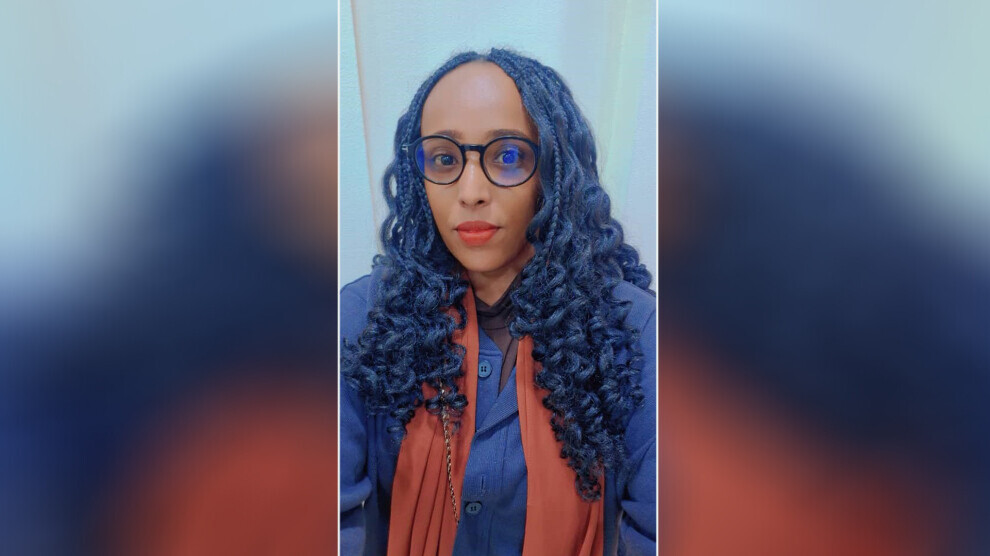From the Pen of Leyla Jama: A Woman’s Voice in the Media Is Not a Choice but a Necessity
“When women’s voices rise, freedom itself rises. And what Somalia needs more than ever today is precisely this freedom.”

Leyla Jama
While Somalia experiences crises ranging from ongoing armed conflicts to drought and forced displacement, the media reflects this complex reality. Women, who make up half of society, are rendered invisible in the field of media.
A woman’s presence in the media is not merely a professional contribution; it is also a courageous act of resistance that breaks down the historically imposed wall of silence, a powerful sign of social transformation. It redefines who has the right to speak on behalf of society and who can represent its stories, hopes, and pains.
Somali women have long been marginalized in the public sphere; their voices have not been heard in politics, the economy, or humanitarian issues. Entering the media is not just a job opportunity; it means reshaping public discourse and giving a voice to the voiceless. The absence of women means excluding half of society from reality. No matter how strong it may be, media that does not give women a fair space is incomplete.
Truth cannot be told without women’s participation
One of the most important functions of the media is to convey the truth. But truth cannot be told without the participation of women. Somali women journalists shed light on issues often overlooked—domestic violence, early marriage, female genital mutilation, and denial of the right to education. The presence of women in newsrooms ensures that these issues do not remain in the shadows and that society confronts its painful realities.
When a journalist writes about a mother who lost her children due to drought, or conveys the suffering of women in refugee camps, it offers humanity the chance to reflect and seek solutions. A woman’s voice in the media is not only a report or a program; it is a window into lives often invisible in traditional media.
They became a source of inspiration
In recent years, digital media has opened new spaces of expression for women. Social networks and online platforms have provided young women journalists with freer visibility. These platforms are not only tools of broadcasting; they are spaces where women can directly deliver their stories to the masses and build a balanced public opinion.
Digital women journalists have not only expanded the field of media; they have also become a source of inspiration for future generations. When young girls see a Somali woman presenting a television program or signing an investigative report, they understand that they too have the right to participate and to compete.
“Silencing women’s voices means ignoring the truth”
Despite all these opportunities, the obstacles faced by Somali women in the media are enormous: security threats, gender-based violence, institutional and social discrimination, weak legal protection, and the lack of training and support programs. All of these obstacles make this media journey even more difficult for Somali women in the field. If these obstacles are not resolved, women’s opportunities to expand freedom of expression will remain limited; half of society will be left outside the media. Silencing women’s voices means ignoring half of the truth.
Women prove the power of change
In no society can freedom of expression be complete without giving women a fair share. A woman’s voice in the media is not an individual right; it is a fundamental condition for building a democratic and inclusive society. Somali women journalists, who are paving the way under difficult conditions, prove that change is possible. Supporting them is not a luxury—it is an investment in the freedom of the whole society.
Women’s presence in the media goes beyond delivering news; it also includes education, accountability, and participation in public decision-making processes. Every report is a step toward a more just and equal society.
The need for women’s solidarity
Somali women have started working in the media; now what they need is institutional and social support, legal protection, professional training, and women’s solidarity both inside and outside the country. All of these transform women’s voices into a real force for change.
Somali society cannot achieve development and stability without hearing the voices of its women. A woman’s voice in the media is not a choice; it is a necessity. All we have to do is listen, support, and give these voices the opportunity to change reality. After all, when women’s voices rise, freedom itself rises. And what Somalia needs more than ever today is precisely this freedom.
